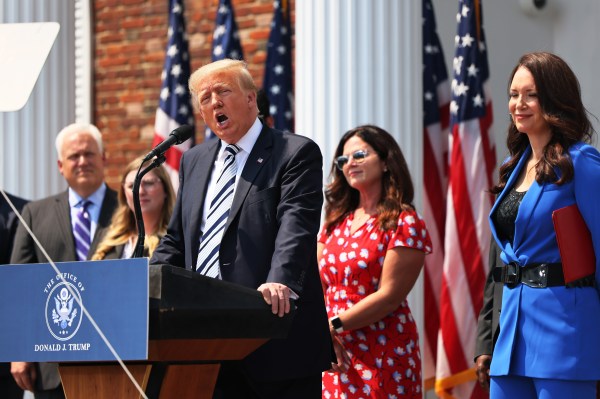In his first press event since ignominiously leaving office earlier this year, former President Donald Trump announced that he is launching a volley of class action lawsuits against Twitter, Facebook, Google and their CEOs, claiming that the three companies violated his First Amendment rights.
“We’re demanding an end to the shadow-banning, a stop to the silencing and a stop to the blacklisting, banishing and canceling that you know so well,” Trump said at the press conference, held at his Bedminster, New Jersey golf club.
Following the January 6 attack on the Capitol, social media platforms swiftly revoked then President Trump’s posting privileges. For years, Trump tested the boundaries of platforms’ policies around misinformation and even violent threats, but his role in the events of that day crossed a line. Trump soon found himself without a megaphone with which to reach his many millions of followers across Twitter, Facebook and YouTube.
Trump’s fate on Twitter is known: the former president faces a lifetime ban there. But on Facebook and YouTube, there’s a possibility that his accounts could be restored. Facebook is still deliberating that decision after its external policy making body, the Facebook Oversight Board, kicked the issue back to the company. Facebook now needs to determine the length of Trump’s indefinite suspension, whether permanent or for a fixed period of time.
Trump will be the lead plaintiff in the suits, which are being filed in the U.S. District Court for the Southern District of Florida. The lawsuits seek “compensatory and punitive damages” and the restoration of Trump’s social media accounts.
The lawsuits have already had their intended effect of generating attention, but they aren’t likely to go anywhere. Trump accuses Facebook, Twitter and Google of violating his First Amendment rights, but the First Amendment pertains to governments censoring free speech, not businesses.
The three companies are also well-guarded by Section 230 of the Communications Decency Act, which both protects platforms from legal liability for the content they host and empowers them to make content moderation decisions — including the decision to remove a sitting president from their platforms altogether.


